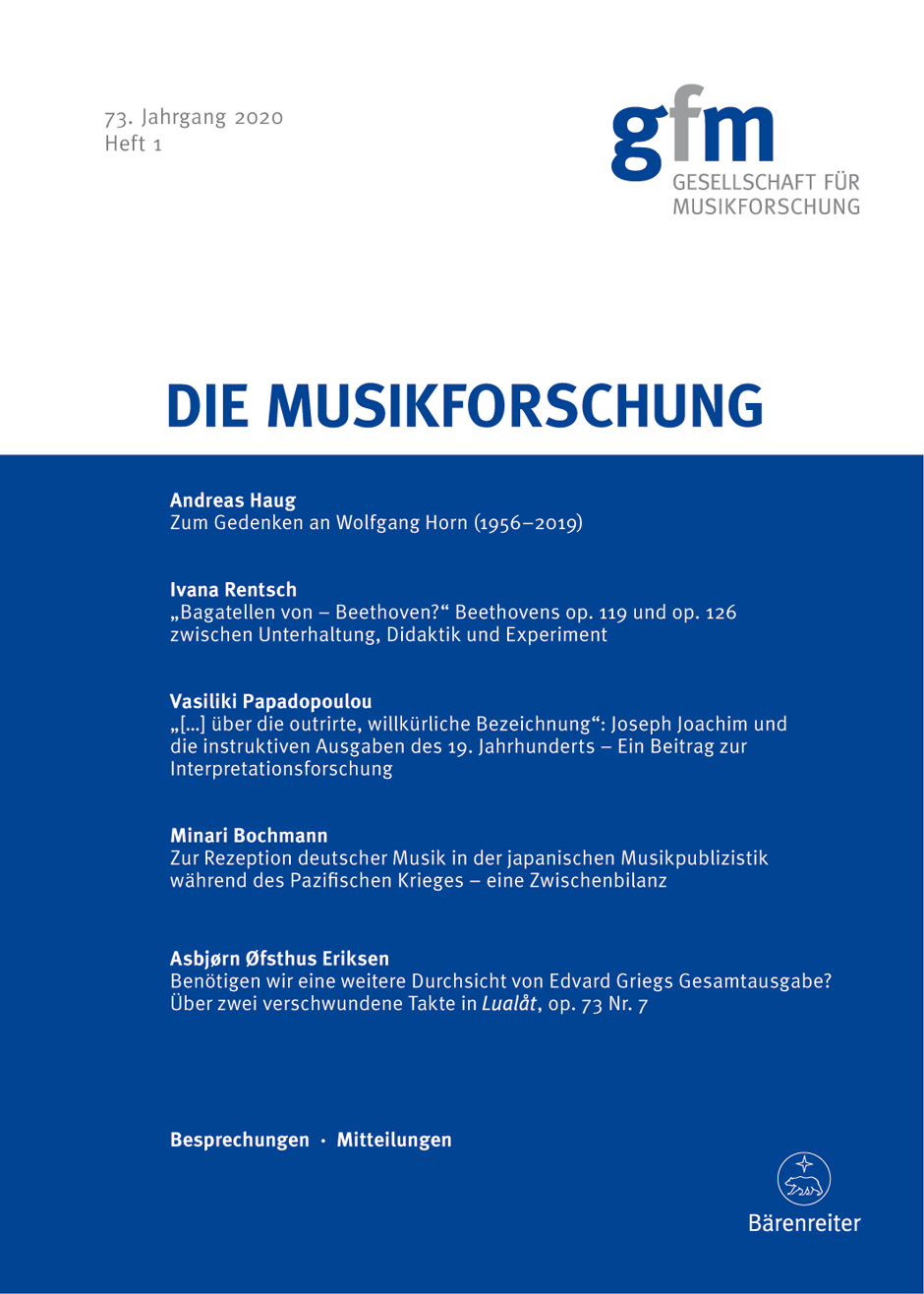Zur Rezeption deutscher Musik in der japanischen Musikpublizistik während des Pazifischen Krieges - eine Zwischenbilanz
DOI:
https://doi.org/10.52412/mf.2020.H1.29Abstract
This article analyses the reception of German music in the music press of Japan during the Pacific War, against the bakdrop of the German-Japanese policy of alliance and a twofold centralization of the Japanese music press. In the first half of the 1940s the number of journals dealing with European music was reduced and an official cultural association, subordinated to the ministries for culture and propaganda, was founded. A close reading of Japanese music journals from between 1941 and 1944 establishes that German music was re-interpreted several times within a relatively short period of time, depending on its use for propaganda or social conformity. At first music journals demonstrated great interest in the restructuring of cultural life in Germany and compared German art music favourably with Russian, French and American music, particularly jazz. From 1943 onwards official control of the music press tightened and, in the wake of calls for a genuinely Japanese music independent of European traditions, anti-European rhetoric became more prominent, although German art music continued to be invoked against jazz and the vulgarization of art through popular music.






